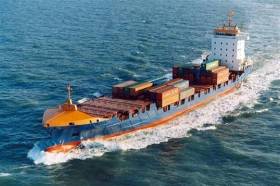Displaying items by tag: Reefer Track & Trace
Samskip Launches Track & Trace Capability for 45ft Reefers
#Track&Trace - Samskip has launched track and trace capability across its 45ft refrigerated container fleet, bringing web-based remote management for temperature-controlled cargoes throughout the Samskip intermodal network.
Over time, reports Multimodal, the entire Samskip 45ft reefer fleet is expected to feature the track & trace capability.
Track & trace management software will be used to monitor and control sensor-connected 45ft reefer units operating in shortsea, rail, barge and road services throughout Europe, and during terminal storage.
“The temperature data is live, enabling instantaneous control over our reefers, whether they are awaiting pick-up or delivery, or moving anywhere in our logistics chain,” said Johan Vogelaar, Manager Multimodal Services - Reefer Trade, Samskip.
“Pre-trip inspections are straightforward and speedy, with the potential for human error minimized. Meanwhile, automated alarms warn of any potential risk of cargo damage ahead of time.”
Investment in track & trace capability is more usually associated with deepsea operations, but it has clear benefits long distance intermodal moves. Shortsea transit already beats road trailer counterparts for reliability, Mr Vogelaar said, but the ability to make temperature adjustments and respond to malfunctions instantaneously brought a new competitive edge to Samskip’s temperature controlled services.
“We can always be in direct contact with our 45ft reefers, so cargo is never left unattended,” he said.
“Real-time temperature and location information can be shared within Samskip so that best practices are transparent all round.”
Cloud-based storage of data on the Track & Trace Global Management Server meant that supporting documentation and event histories could be downloaded at all times at the touch of a button, he said, while cloud-based data analytics played into intermodal’s planning superiority.
The new system’s ability to store container tracking and mapping data for up to two years is also expected to be critical to future equipment investment decisions.
























































